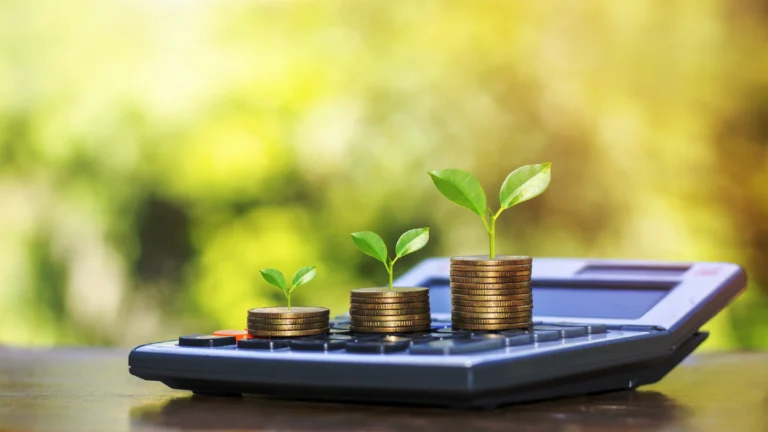Renewable Resolutions: Harnessing Home Eco Grants for a Greener 2024
With the urgent need to combat climate change, governments and organisations around the world are increasingly focusing on promoting renewable energy solutions. In this quest for a greener future, home eco grants have emerged as a valuable tool in incentivising individuals to adopt sustainable practices. Understanding the importance of these grants and learning how to maximize their benefits can make a significant impact on our collective efforts to reduce carbon emissions and transition to a more sustainable energy system.
Understanding the importance of home eco grants
Home eco grants play a crucial role in promoting the adoption of renewable energy technologies at the household level. These grants provide financial support to homeowners who want to make energy-efficient upgrades to their properties. By offering financial incentives, eco grants encourage individuals to invest in renewable energy systems and energy-efficient appliances, helping to reduce reliance on traditional energy sources and lower carbon emissions.
When it comes to creating a sustainable future, every effort counts. Home eco grants are a key component in the larger picture of transitioning to a greener society. By supporting homeowners in their quest for energy efficiency, these grants contribute to a more sustainable and environmentally friendly way of living.
The role of eco grants in promoting renewable energy
Eco grants have become an essential tool in accelerating the transition to renewable energy sources. By subsidising the upfront costs associated with installing solar panels, wind turbines, or heat pumps, for example, eco grants make these green technologies more accessible and affordable for homeowners. This, in turn, increases the uptake of renewable energy systems, leading to a greener and more sustainable energy mix.
Imagine a world where every home is equipped with solar panels, harnessing the power of the sun to generate clean and renewable energy. With the help of eco grants, this vision becomes more attainable. Homeowners are empowered to embrace renewable energy technologies, not only benefiting themselves but also contributing to the larger goal of combating climate change.
How home eco grants contribute to a greener future
By making renewable energy systems more financially viable for homeowners, eco grants are instrumental in driving the widespread adoption of sustainable technologies. This shift towards renewable energy not only reduces our carbon footprint but also helps to diversify our energy sources and increase energy security. Additionally, the installation of energy-efficient appliances through eco grants can lead to significant energy savings, further reducing our impact on the environment.
Energy efficiency is not just a buzzword; it is a critical aspect of building a sustainable future. With the support of home eco grants, homeowners can upgrade their properties with energy-efficient appliances, reducing their energy consumption and lowering their utility bills. This not only benefits their wallets but also contributes to a greener future for all.
Furthermore, the positive impact of home eco grants extends beyond individual households. As more and more homeowners take advantage of these grants, the demand for renewable energy technologies increases. This, in turn, drives innovation and investment in the renewable energy sector, creating job opportunities and stimulating economic growth.
It is important to recognise that the benefits of home eco grants go beyond the immediate financial incentives. They empower homeowners to become active participants in the transition to a sustainable future, fostering a sense of responsibility and environmental stewardship. By supporting eco grants, we are not only investing in our homes but also investing in a better and greener world for future generations.
The process of applying for home eco grants
Applying for home eco grants may seem like a daunting task, but the process can be straightforward if you know what to expect. Understanding the eligibility criteria and following the necessary steps can increase your chances of securing a grant to fund your renewable energy projects.
Eligibility criteria for home eco grants
Before venturing into the application process, it’s important to confirm your eligibility for home eco grants. Eligibility criteria typically vary depending on your location and the specific grant program. Common requirements include being a homeowner, having a certain level of income, and adhering to specific energy efficiency standards. Researching and understanding the eligibility criteria relevant to your area will help you determine if you qualify for the grants.
When it comes to being a homeowner, it’s not just about owning any property. Some grant programs may require you to have owned the property for a certain period, ensuring that you have a long-term commitment to improving its energy efficiency. Additionally, some grants may prioritise applicants who have not previously received funding, allowing new homeowners to benefit from the program.
Income requirements can also play a role in determining eligibility for home eco grants. This is because these grants are often aimed at helping low-income households reduce their energy costs and improve their living conditions. By targeting those who may struggle to afford energy-efficient upgrades, these grants can have a significant impact on reducing energy poverty and promoting sustainability.
Specific energy efficiency standards may also be a factor in determining eligibility. These standards ensure that the grants are being used to fund projects that will have a meaningful impact on reducing energy consumption and greenhouse gas emissions. By adhering to these standards, applicants can demonstrate their commitment to creating a more sustainable future.
Steps to apply for eco grants
Once you have confirmed your eligibility, it’s time to start the application process. The exact steps can vary, but the following general guidelines can provide a helpful starting point:
- Research available grants: Start by researching the eco grant programs available in your region. Look for grants that align with your renewable energy goals and preferences.
- When researching available grants, it’s important to consider not only the financial support they offer but also the additional benefits they provide. Some grants may offer technical assistance or access to expert advice, helping you make informed decisions about your renewable energy projects. Others may prioritise certain types of renewable energy technologies, such as solar panels or heat pumps, which can further guide your research and decision-making process. Gather required documentation: Each grant program will have specific documentation requirements. Familiarise yourself with these and gather the necessary paperwork to support your application.
- Documentation requirements can vary widely depending on the grant program. Common documents include proof of homeownership, income verification, and quotes or estimates for the proposed renewable energy projects. It’s important to ensure that all documents are up to date and accurate, as any discrepancies or missing information could delay the processing of your application. Complete the application: Fill out the application form accurately and provide all required information. Be sure to double-check for any additional supporting documents that may be needed.
- When completing the application form, take your time to provide detailed and accurate information. This will help the grant program assess your project’s feasibility and determine its potential impact. Additionally, be prepared to answer any additional questions or provide supplementary information that may be requested as part of the application process. Submit your application: Follow the instructions provided by the grant program to submit your application. Pay close attention to any deadlines and ensure that you meet all requirements.
- Submitting your application on time is crucial to maximise your chances of securing a home eco grant. Grant programs often have limited funding available, and applications are typically assessed on a first-come, first-served basis. By submitting your application early, you increase the likelihood of receiving the financial support you need for your renewable energy projects. Follow up: After submitting your application, monitor your progress and follow up with the grant program if necessary. This can help you stay informed and address any potential issues on time.
Following up with the grant program can provide valuable insights into the status of your application. It allows you to stay informed about any additional documentation or information required and allows you to address any concerns or questions the program may have. By maintaining open lines of communication, you can ensure that your application is given the attention it deserves.
Maximising the benefits of Home Eco grants
Receiving a home eco grant is a fantastic opportunity that can have a positive impact on both the environment and your finances. However, it’s essential to make the most of it to achieve meaningful and lasting results. Taking a strategic approach and considering the following tips can help you maximize the benefits of your eco grant:
Tips for using eco grants effectively
When planning and executing your renewable energy projects, keep the following tips in mind:
- Do thorough research: Before deciding on a specific renewable energy system or energy-efficient appliance, conduct thorough research. Consider factors such as cost-effectiveness, long-term savings, and compatibility with your property.
- Research is key when it comes to making informed decisions about your eco grant. Take the time to explore different renewable energy options available to you. Solar panels, wind turbines, and heat pumps are just a few examples of the technologies you can consider. By understanding the pros and cons of each, you can choose the one that best suits your needs and maximises the benefits of your grant. Get multiple quotes: Obtaining multiple quotes from reputable suppliers can help you make an informed decision and ensure you are getting the best value for your eco grant.
- Don’t settle for the first quote you receive. Take the opportunity to reach out to different suppliers and compare their offerings. This will not only give you a better understanding of the market but also help you negotiate better deals. Remember, your eco grant is a valuable resource, and it’s important to make every penny count. Work with certified professionals: When it comes to installations, rely on certified professionals who have experience in renewable energy systems. This can help guarantee quality workmanship and maximise the performance of your system.
- Installing renewable energy systems requires expertise and precision. By working with certified professionals, you can ensure that the installation process is smooth and efficient. These experts have the knowledge and skills to handle the complexities of renewable energy systems, ensuring that your grant is put to good use. Maintain your system: Regular inspection and maintenance of your renewable energy system will ensure optimal performance and longevity. This can also help identify and address any potential issues before they become costly problems.
Once your renewable energy system is up and running, it’s crucial to prioritise its maintenance. Regular inspections and maintenance checks will help keep your system in top shape, ensuring that it operates at its full potential. By addressing any issues early on, you can avoid costly repairs and maximise the benefits of your eco grant for years to come.
Avoiding common pitfalls in eco grant usage
While eco grants offer tremendous opportunities, it’s important to be aware of common pitfalls that can hinder your progress. Some potential challenges include:
- Lack of planning: Failing to plan your renewable energy projects thoroughly can lead to delays, cost overruns, or suboptimal outcomes.
- Proper planning is crucial when it comes to utilizing your eco grant effectively. Take the time to create a detailed plan that outlines your goals, timelines, and budget. This will help you stay organised and ensure that your project progresses smoothly. Remember, a well-executed plan is the foundation for success. Not considering long-term costs: While eco grants cover a significant portion of the upfront costs, it’s important to consider the long-term maintenance and operational costs associated with renewable energy systems.
- While eco grants provide valuable financial support, it’s essential to consider the long-term implications of your renewable energy system. Understand the maintenance requirements and potential operational costs associated with your chosen technology. By factoring in these expenses, you can make informed decisions and ensure that your system remains sustainable in the long run. Ignoring energy efficiency: Before investing in renewable energy, ensure that your property is energy-efficient to maximise the efficiency and effectiveness of your system.
Energy efficiency goes hand in hand with renewable energy. Before diving into renewable energy projects, take the time to assess the energy efficiency of your property. Simple measures such as insulating your home, upgrading to energy-efficient appliances, and optimising your heating and cooling systems can significantly enhance the performance of your renewable energy system. By addressing energy efficiency first, you can maximise the benefits of your eco grant and create a more sustainable living environment.
The impact of home eco grants on the environment
The positive impact of home eco grants on the environment cannot be understated. By encouraging the widespread adoption of renewable energy systems and energy-efficient appliances, these grants contribute to significant reductions in carbon emissions.
The correlation between eco grants and reduced carbon emissions
Studies have shown a clear correlation between the availability of eco grants and the reduction in carbon emissions at the household level. By offsetting the costs of renewable energy installations, eco grants enable more homeowners to make environmentally conscious choices, resulting in a substantial decrease in greenhouse gas emissions.
How eco grants are shaping the future of renewable energy
The impact of home eco grants extends beyond individual households. By driving demand for renewable energy technologies, eco grants encourage innovation, market growth, and economies of scale. This, in turn, fosters further advancements in renewable energy industries, making them more affordable and accessible for everyone.
Looking ahead: The future of home eco grants
The future of home eco grants is promising, with continued efforts to promote renewable energy adoption and achieve a greener 2024. Predicted trends highlight various areas of development and potential enhancements in the distribution of eco grants.
Predicted trends in eco grant distribution
In the coming years, we can expect to see an expansion of eco grant programs, both in terms of the number of grants available and the geographical areas they cover. Additionally, there may be a shift towards targeted grants that focus on specific renewable technologies or energy-saving initiatives.
The potential of eco grants in achieving a greener 2024
The potential impact of eco grants in achieving a greener 2024 cannot be overstated. By facilitating the widespread adoption of renewable energy systems and promoting energy efficiency, these grants have the power to significantly reduce our carbon footprint and create a more sustainable future.
As we navigate the path towards a more sustainable world, harnessing the power of home eco grants is essential. By understanding the importance of these grants, effectively applying for them, and maximising their benefits, we can collectively contribute to a greener 2024 and beyond.



